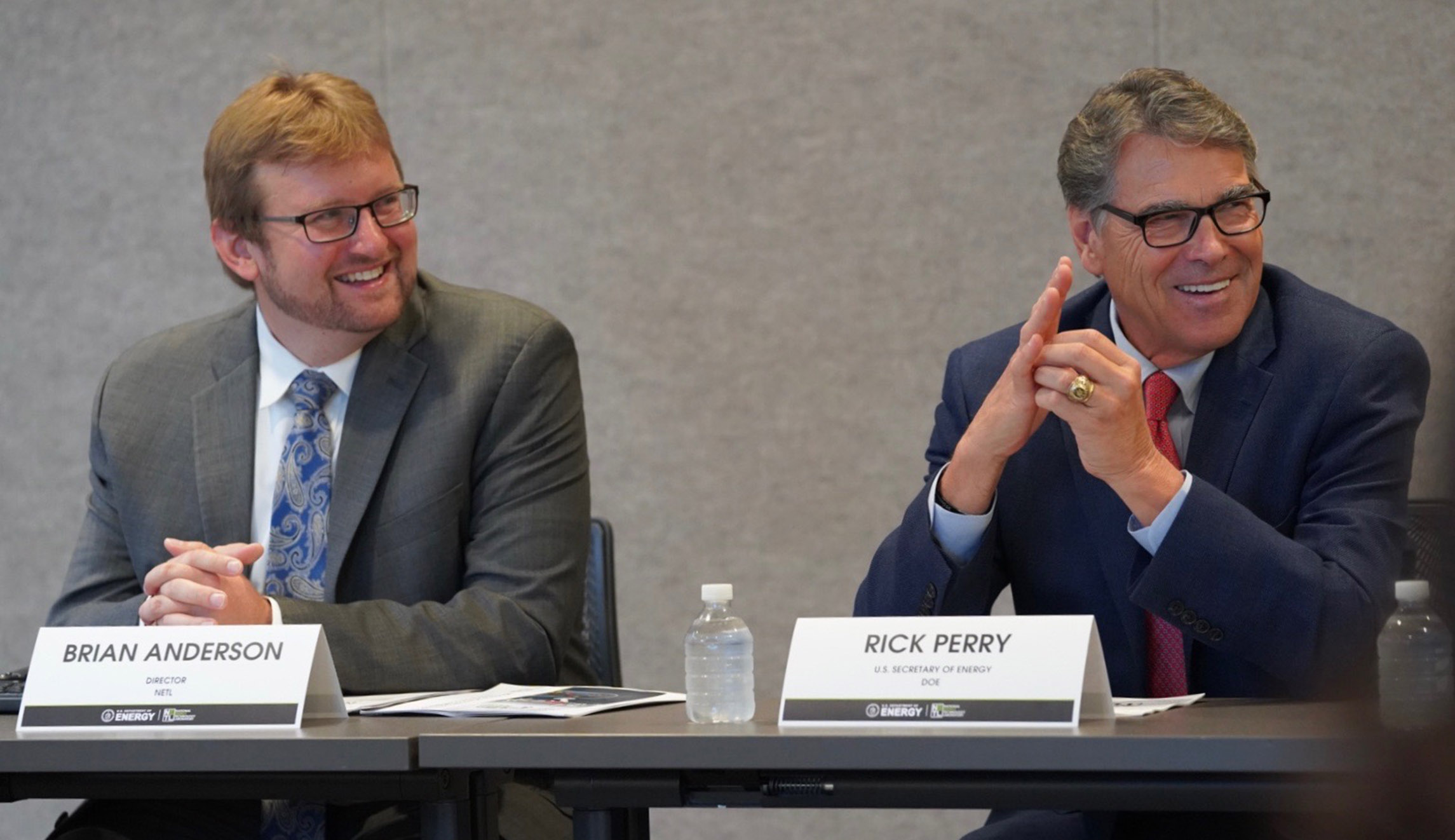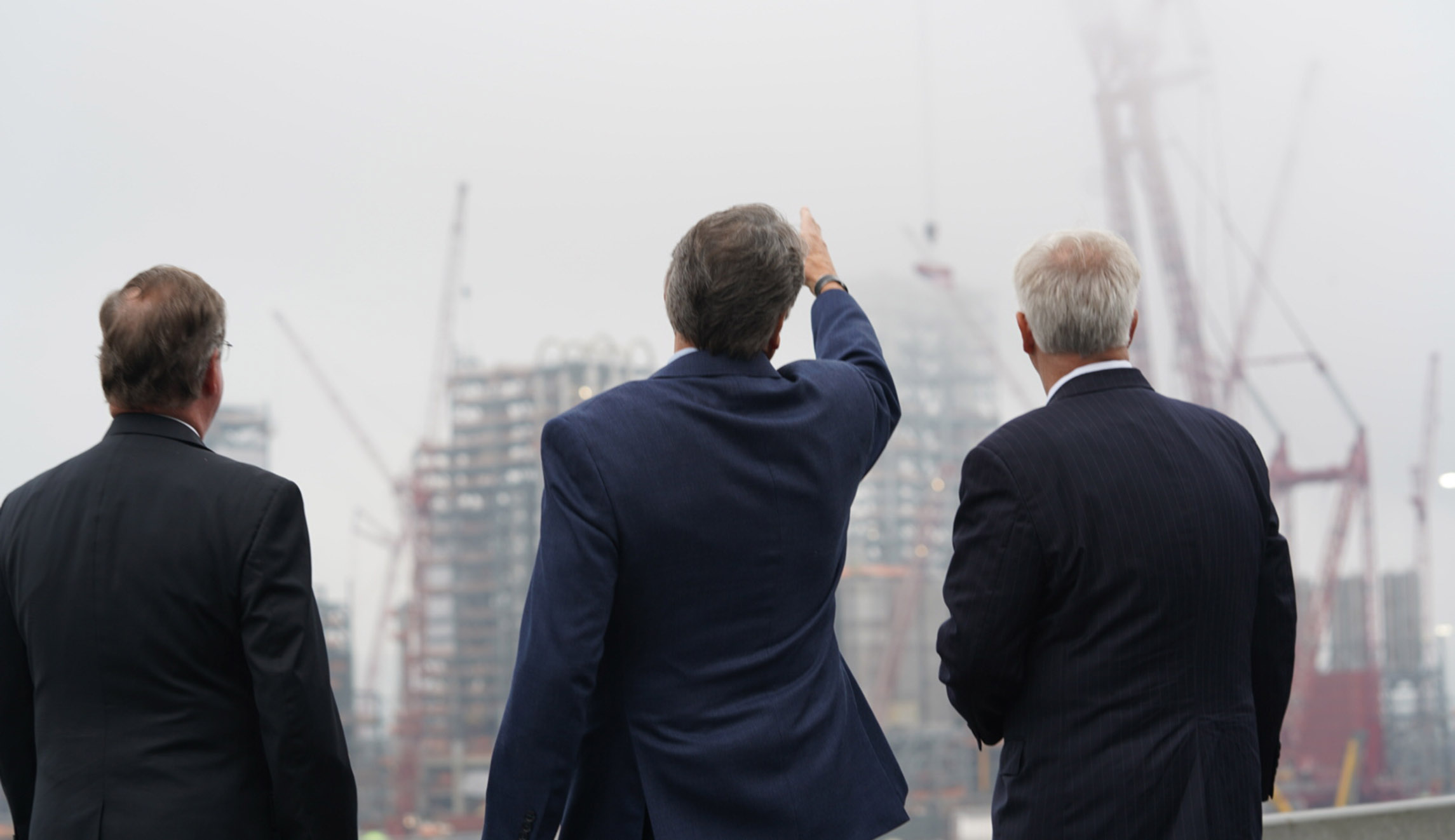JEFFERSON HILLS, Pennsylvania — Rick Perry can barely contain his enthusiasm.
“It’s a great time to be an American,” the energy secretary and former Texas governor declares. “We’re the number one oil and gas producing country in the world. We’re delivering our liquefied natural gas to 36 different countries. We’re impacting the geopolitical framework of the world in a way, maybe certainly since World War II, that we haven’t been able to.”
Perry was at the National Energy Technology Laboratory in suburban Pittsburgh, a little-known facility created over 100 years ago to support the coal industry and to cultivate and grow emerging technologies. Today it’s the Department of Energy’s premier for fossil fuel energy research.
Here in Western Pennsylvania, energy means jobs, good jobs, jobs for scientists, chemists, engineers, laborers, and computer professionals. They all work together, not just at the NETL lab, but also at the nearby Beaver County cracker plant, a massive facility which gets its name from the process that uses intense heat to “crack” ethane molecules that will into turn polyethylene, a type of plastic used in many of the things you have lying around your house.
Trump and Perry spoke at the facility Tuesday as part of an official presidential tour, showcasing American manufacturing. Constructing the plant will require 6,000 workers. Industry analysts predict it will permanently employ 600 once it is operating, a number they say will double and perhaps triple in its supply chain.
The cracker plant facility’s location was negotiated by the previous governor, Republican Tom Corbett, after a grueling regional Tri-state competition with West Virginia and Ohio.
Trump was here to highlight how his administration has helped facilities like this thrive by easing regulations. That creates jobs, and it helps regular Americans better afford everyday goods.

“There are those on the Left who just say wow, the product that they’re making is plastics and plastics is the bane of the earth,” Perry said in an interview. “They run through their litany of things, you know, plastics in the ocean, plastics here, plastics there, bio plastic, micro plastics in our food supply, etc. And those are all concerns. I’m not trying to say that they’re not concerns, but what this plant is producing here is a polypropylene,” he says.
“I mean I’m looking around the room and here I’m sitting on polypropylene building of materials that this building are constructed of … I’m pretty sure that the key pad on this computer’s completely polypropylene. The case on this phone’s polypropylene.”
Perry pauses to drive the importance of the plastics usefulness home. “And I’m not asking anybody if they’ve had heart surgery, but if there’s anybody in here that’s got a heart valve, it was made with polypropylene. And so there are all of these really good things that are making our lives better, more efficient, simpler, that this plant is going to be producing,” he said.
This part of Appalachia, including West Virginia and eastern Ohio, is home to “wet” gas — the kind of gas that carries “natural gas liquids” that become a variety of useful fuels when separated and refined.

“They are doing some really cool stuff on artificial intelligence and machine learning for the downhole mapping of formations,” he says of the research done at the lab. “It really goes to my point that I try to make with people who automatically think because its fossil fuels, they don’t like it.
“My larger point is that this mentality doesn’t trust or doesn’t believe (or maybe both) that American innovation and American technology, can address the challenges that we see in the world today. For instance, the ability to use coal in super critical plants and have near zero emissions,” he said of advancing technologies and research that have come out of the lab.
Perry argued that innovation has made the gas and coal in this region more valuable, thus creating jobs. “This is a region that has been economically tested and economically restricted and is now seeing a really bright future. I think that’s a good thing.”
Perry says the fossil fuel haters attacking Trump miss a key point: “They don’t want to face the reality that this material is going to be made somewhere. I mean, the world is demanding this material, this polypropylene. It’s going to be made somewhere. You want it made cleaner, it needs to be made in America, not in China.”
